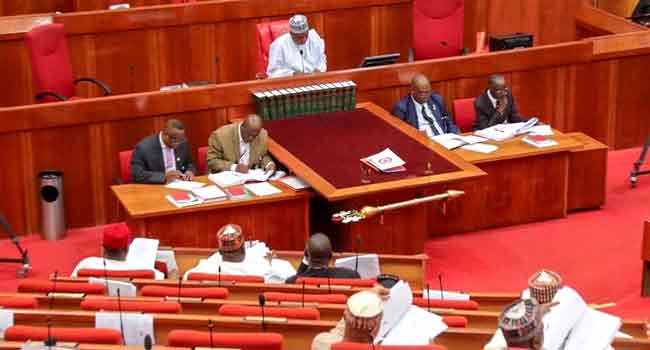Unbundle INEC now, Stakeholders tells National assembly
Voting rights advocates, election officials, and others with a vested interest in the electoral process have all urged for INEC to be split up into their own separate institutions.
On Tuesday in Abuja, The Electoral Hub and the Open Society Foundation (OSF) Africa hosted a round table and public presentation of policy papers on citizens’ rights and the impact of insecurity on elections, where the call was made.
According to Mr. Adebayo Balogun, chairman of the House of Representatives’ Committee on election Matter, INEC already has a heavy workload, and the task of combating election violence has further increased its workload.
Balogun stated that INEC could be more effective if it delegated part of its responsibilities to other existing or newly created entities.
He suggested that the role of publicising election information to voters be transferred from INEC to the National Orientation Agency (NOA).
Unbundling INEC to separate the part that deals with electoral offences and violence and bring it to a different agency is one of the many things we’re working on, but it’s the one that most directly pertains to what we’re discussing here today.
Therefore, we are advocating for legislation that would create an electoral offence commission and tribunal with jurisdiction over election-related crimes like violence, vote-buying, and other forms of electoral fraud.
Because, in our opinion, INEC already has too much on its plate. He argued that the electoral commission should be free to focus on electoral issues while other responsibilities were delegated to other bodies.
Balogun stated that by establishing an electoral offences agency, it would be able to deal with matters relating to violence and that the agency would include multiple security organisations trying to figure out how to deal with the issue.
Dealing with insecurity is a professional affair, and INEC should not be tasked with it. However, we need a professional body when we talk about battling security.
He argued that we need experts in that area to examine the situation and propose suggestions for improving productivity.
Balogun suggested that stakeholders in Kogi, Bayelsa, and Imo should have a conversation with their families in order to prevent bloodshed during Saturday’s election.
Former INEC Chairman Professor Attahiru Jega acknowledged that electoral violence was a systemic problem in Nigeria and called for concerted action to address it.
Jega noted that the elimination of insecurity and electoral violence was a priority because they undermined the nation’s social and economic strength.
“We must direct all of our energies towards the things that must be done to greatly reduce, if not eradicate, violence in the conduct of our elections.
We need everyone to pitch in so that we can keep moving forward and hold successful elections. We should all get together and make this a reality.
We expect the National Assembly to review all of the papers and provide fair proposals for changing the Electoral Act, he said.
The INEC Chairman, Professor Mahmood Yakubu, has stated that the commission is willing to follow any legislation passed to reduce electoral violence.
Prof. Mohammed Kuna, Yakubu’s Special Adviser, spoke on Yakubu’s behalf, and he praised INEC’s history of innovation.
“The commission is ready to accept new innovations; INEC, since its foundation, has always welcomed new discoveries and initiatives, just like the introduction of BVAS and PVCs,” he said.
In her opening remarks, Princess Hamman-Obels, Director, Electoral Hub, said that the project was launched with funding from OSF, Africa to support INEC and the electoral process on election security through the production of three well-researched policy papers on the impact of insecurity on elections.
Hamman-Obels stated that the goals were to ensure credible and peaceful elections and to protect INEC’s and the electoral process’s integrity.
She explained that the project’s goal was to improve people’s familiarity with election security risks and their ramifications in various forms.
The current security situation in Nigeria and its negative effects on elections are explored in depth.
To do this, we need to take a close look at the obstacles, openings, and dangers that could jeopardise the fairness of our voting system.
We also aim to map security issues and how they impacted INEC’s 2023 election preparations, she added.
According to Hamman-Obels, if election duty-bearers like INEC had a better grasp of these, they could better tailor their plans to the country’s specific requirements.
According to her, the research led to the development of concrete suggestions for bolstering voting security.




